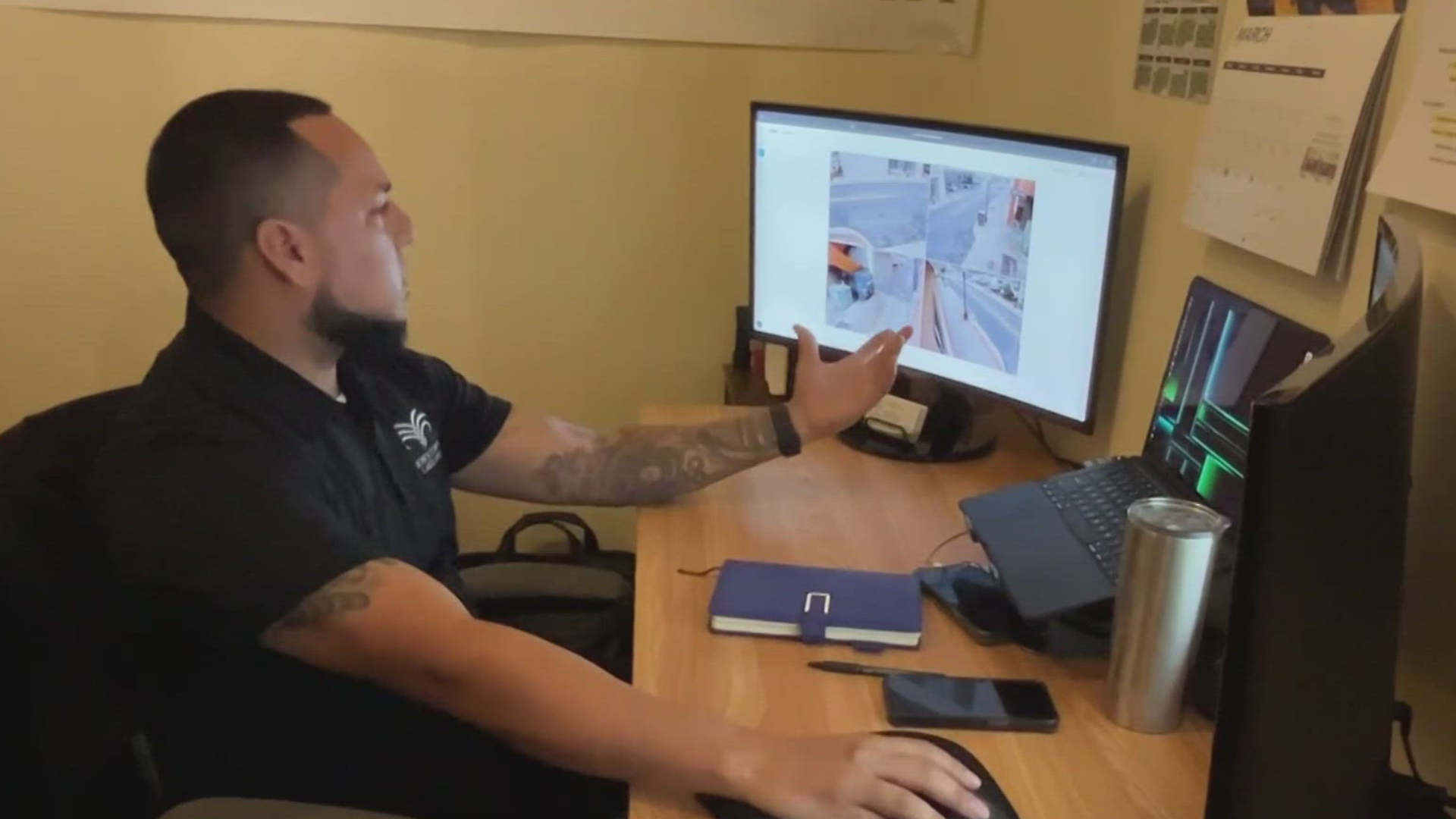LAKELAND, Fla. — Some critics are raising privacy concerns in the city of Lakeland after recently installed surveillance cameras were revealed to include facial recognition technology.
Promoters say it’s for public safety, but some feel that enhancement pushes the boundaries of privacy — even in public areas.
“It's about keeping the district safe,” said Julie Townsend, the Director of the Lakeland Downtown Development Authority. The agency, she says, makes no apologies for its new surveillance network.
“There are 13 cameras. All 13 have facial recognition,” Townsend said. So far, Lakeland has installed nine of the cameras. By the end of April, they expected to be close to 13. Each of them is armed with the facial recognition system.
But when the program was approved, critics say no one mentioned that the cameras would also be scanning everyone using facial recognition software, in addition to storing video for an extended period.
“I guess I could see that it would stop criminals and get bad guys off the streets, so I've seen it both ways, but I just think in the world we need to protect our privacy,” said Shane LeBoyde, visiting the downtown area.
The system works by loading an individual's photograph. Cameras then scan everyone in their view, and if there's a match, an alert can be sent to police. The data is stored in the system for a month.
“You know, after thirty days it’s gone,” Lakeland Clean and Safe Manager Tony DaVilla said. “If you're not doing anything, there shouldn't be any concerns.”
For now, the Lakeland Downtown Development Authority says it has only three photographs loaded into the system – those of trespassers and troublemakers, as they describe them.
But it may not end there. The system’s capacity is virtually unlimited, which raises questions about whether local law enforcement agencies might tap into the system with any number of images and use the system to scan downtown Lakeland.
“If that person has a warrant for their arrest and they're a threat to public safety, why would we not allow that to be done?” Townsend said.
In some cities, law enforcement agencies have started to back away from facial recognition after misidentifications led to lawsuits stemming from wrongful arrests.
Townsend said the program is still in its infancy and will address issues when and if they arise.
So far, the facial recognition software has positively identified two of the three people whose photos were loaded into the system.

